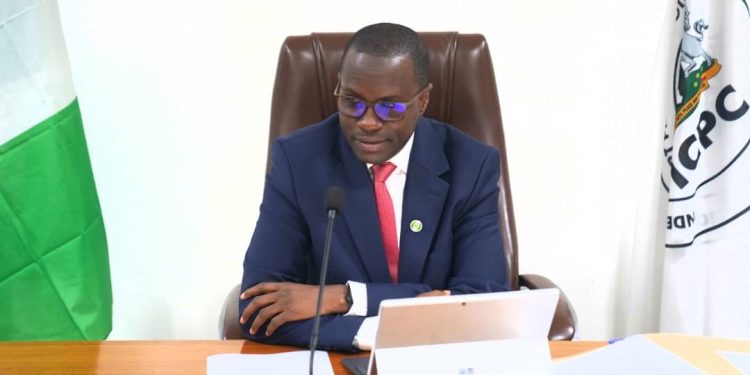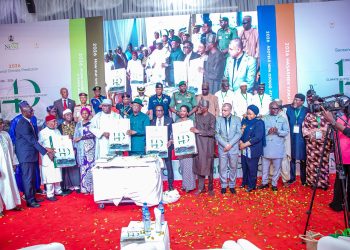By Nkechi Eze
The Independent Corrupt Practices and Other Related Offences Commission (ICPC) has achieved a historic milestone in its asset disposal operations, generating a record-breaking ₦1.86 billion from the sale of 23 forfeited assets in 2024, the highest amount since the Commission’s inception.
The remarkable achievement was disclosed in an official statement signed by the Commission’s spokesperson, Demola Bakare, who noted that the announcement was made during the 2025 meeting of the ICPC Asset Disposal Committee. The feat, he said, followed the presentation of a detailed report by the Proceeds of Crime Department (POCD), which oversees the recovery, management, and disposal of forfeited assets in line with the Proceeds of Crime (Recovery and Management) Act (POCA) 2022.
According to the report, out of the 23 assets disposed of in 2024, ten were successfully auctioned in December, while seven could not be sold due to low bids that fell below the approved threshold or forced-sale value. The remaining six assets were affected by legal, security, or encroachment issues, while four unsold assets have been rolled over into the 2025 disposal programme.
A further breakdown of the proceeds revealed that perishable and scrapped assets accounted for ₦3,969,400.00, off-cycle disposal sales of three assets were valued at ₦975,000,000.00, while on-cycle disposal sales of 20 assets amounted to ₦890,000,000.00.
For the 2025 exercise, the Committee has presented 30 movable and immovable assets for disposal. These include four rolled-over assets from 2024, twelve immovable assets, three movable assets, and eleven batches of perishable assets newly enrolled for auction.
Presiding over the meeting, the ICPC Chairman, Dr. Musa Adamu Aliyu, SAN, commended the Proceeds of Crime Department for its effective execution of the Commission’s statutory mandate. He described asset recovery and disposal as vital pillars in the national anti-corruption strategy.
“The significance of asset recovery in the fight against corruption cannot be overstated. It serves as a vital mechanism for restoring public resources to their rightful use,” Dr. Aliyu stated.
He emphasized that depriving corrupt individuals of the benefits of their illicit wealth remains one of the most potent tools in dismantling corruption networks and deterring financial crimes.
Dr. Aliyu further explained that civil forfeiture provides a faster, cheaper, and more transparent means of recovering stolen assets compared to traditional criminal proceedings. He added that the conversion of confiscated assets into public value contributes to economic growth, strengthens institutional trust, and reinforces the credibility of Nigeria’s anti-corruption drive.
“Asset disposal is a critical aspect of ICPC’s responsibilities under POCA 2022 and other enabling laws,” he noted, “as it promotes transparency, accountability, and value optimization in the conversion of forfeited assets into proceeds that benefit both victims of corruption and the Nigerian public.”
In further demonstration of its commitment to transparency and due process, the 2025 Asset Disposal Committee meeting was observed by independent representatives from the Bureau of Public Procurement (BPP), Nigeria Labour Congress (NLC), Nigeria Union of Journalists (NUJ), Accountability Lab, and the Centre for Fiscal Transparency and Public Integrity (CeFTPI).
Dr. Aliyu applauded the presence of these observers, stressing that their participation strengthens public confidence and ensures that every phase of the asset disposal process is conducted with fairness, integrity, and openness.
He reaffirmed the Commission’s resolve to continue deploying the full provisions of the law to recover and return public assets to national use, assuring Nigerians that the ICPC remains steadfast in its mission to build a corruption-free and accountable society.

















